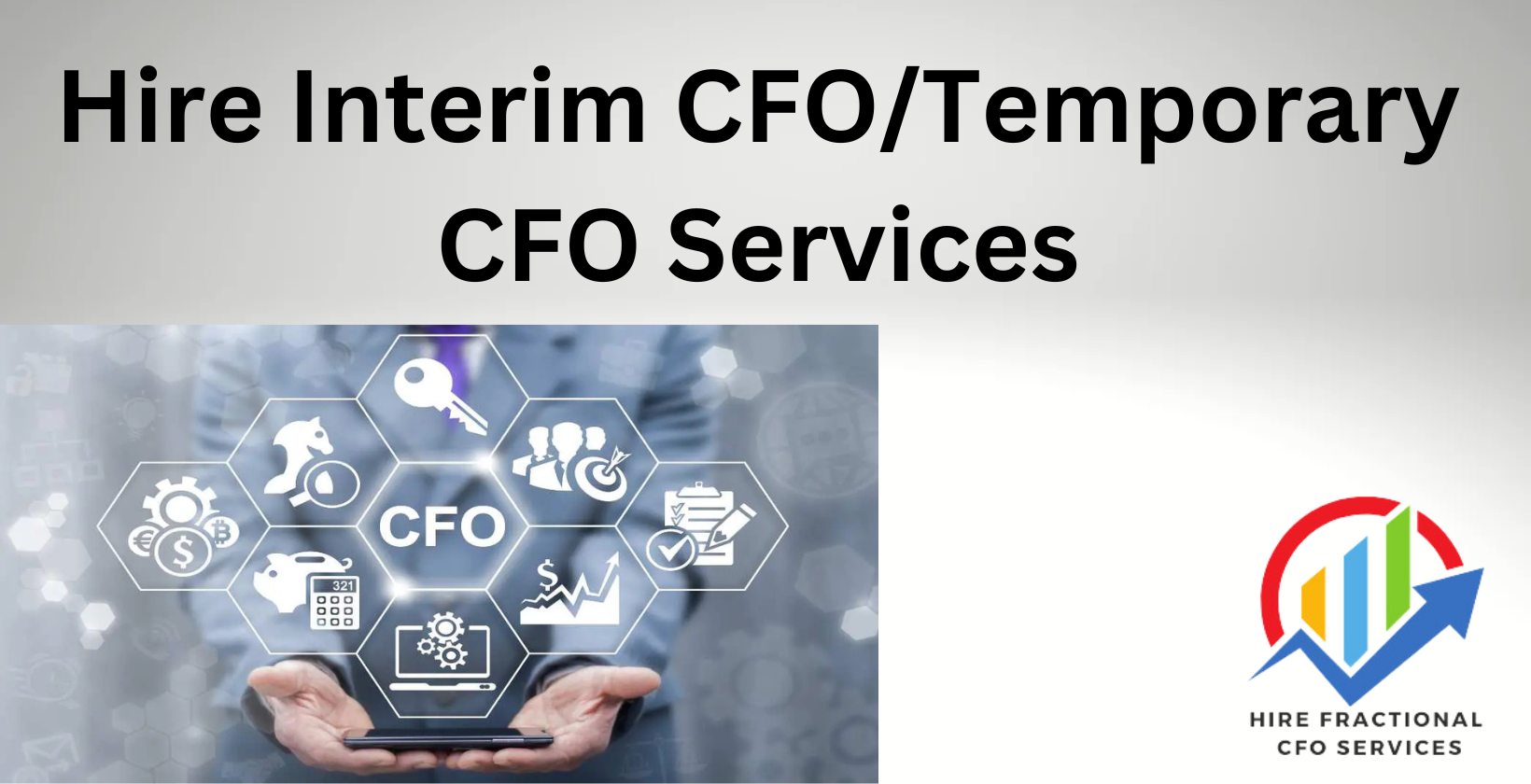Hiring an interim CFO provides businesses with immediate access to experienced financial leadership during transitional periods. Companies facing challenges such as mergers, restructuring, or a sudden vacancy in the CFO position benefit from the expertise of interim CFOs to ensure continuity in financial operations. According to Harvard Business Review, interim executives offer strategic guidance while maintaining flexibility in decision-making and operational execution. These professionals help stabilize businesses by implementing financial strategies, optimizing budgets, and improving cash flow management. The process of hiring an interim CFO is cost-effective and tailored to meet specific business needs, ensuring smooth financial governance without long-term commitments.
What Is Interim CFO
An interim CFO is a temporary Chief Financial Officer appointed to manage and oversee a company’s financial operations during transitional or critical periods. Interim CFOs are often brought in when a business requires immediate financial expertise without committing to a permanent hire. Their responsibilities include financial planning, cash flow management, budget optimization, and advising on strategic decisions. These professionals typically have extensive experience and adapt quickly to the company’s needs, providing stability and guidance during periods of uncertainty or growth.
How to Find and Hire an Interim CFO
You can find and hire an interim CFO by contacting us and filling the form. The process includes identifying your business needs, selecting a candidate with the relevant expertise, and establishing a clear scope of responsibilities. Our platform connects you with experienced interim CFOs who specialize in providing tailored financial solutions. We ensure a seamless hiring process by conducting a thorough evaluation of potential candidates and matching them with your specific requirements. Hiring an interim CFO through us guarantees access to skilled financial leaders who can address your company’s immediate challenges effectively.
When to Hire an Interim CFO
The answer is when a business experiences a significant financial transition or faces challenges requiring immediate expertise. Companies should hire an interim CFO during periods such as leadership vacancies, mergers, acquisitions, or financial restructuring. For example, if a CFO unexpectedly leaves the organization, an interim CFO ensures continuity in financial operations while a permanent replacement is sought. Additionally, businesses undergoing rapid growth or facing cash flow challenges benefit from interim CFOs who can provide strategic guidance and stabilize financial performance.
What Qualities & Skills Make a Great Interim CFO
A great interim CFO possesses a combination of strategic expertise, adaptability, and strong leadership skills. These qualities ensure effective financial management during transitional periods. Key qualities include:
- Strategic Thinking: Ability to analyze complex financial situations and develop actionable strategies.
- Adaptability: Quick adjustment to new environments and understanding of diverse business models.
3 . Leadership: Strong interpersonal skills to lead finance teams and align with organizational goals.
- Problem-solving: Expertise in identifying financial inefficiencies and implementing practical solutions.
- Technical Knowledge: Proficiency in financial systems, compliance regulations, and industry standards.
For example, an interim CFO with experience in managing mergers can ensure seamless financial integration between two companies.
Reasons for Hiring an Interim CFO and What to Expect
The reasons for hiring an interim CFO include immediate financial leadership, expertise in managing transitions, and the flexibility of short-term engagements. Businesses hire interim CFOs when they face financial restructuring, leadership gaps, or strategic shifts. Specific reasons include:
1. Leadership Vacancy: Filling the role when the CFO position is vacant unexpectedly.
2 . Restructuring Needs: Overseeing financial aspects during mergers, acquisitions, or company reorganizations.
3 . Crisis Management: Addressing cash flow challenges, compliance issues, or operational inefficiencies.
What to expect includes a results-driven professional who offers strategic insights, stabilizes financial operations, and provides actionable solutions. Interim CFOs quickly integrate into the business and focus on delivering measurable outcomes within their limited tenure.
Comparison Between Interim CFO, Fractional CFO & Part-Time CFO
|
Feature |
Interim CFO |
Fractional CFO |
Part-Time CFO |
|
Role Duration |
Temporary, full-time during transitions |
Long-term, working on specific needs |
Ongoing, with reduced working hours |
|
Scope of Work |
Broad, covering all financial operations |
Targeted, focusing on specific areas |
General financial oversight |
|
Engagement Type |
Short-term, full responsibility |
Part-time, consultative |
Consistent, part-time management |
|
Use Case |
Leadership gap or major transition |
Strategic projects like fundraising |
Regular financial operations |
|
Commitment |
Full-time availability |
Flexible, project-based |
Scheduled, part-time presence |
What Are the Types of Interim and Fractional Business Models
The types of interim and fractional business models focus on providing specialized expertise in flexible and adaptable formats to meet business needs. These include:
- Project-Based Model: Involves hiring interim or fractional professionals for specific projects such as mergers, acquisitions, or financial audits. Example: A business may engage an interim CFO to oversee financial restructuring during a merger.
- Time-Based Model: Professionals are hired on a temporary basis for a defined period. Example: A fractional CFO works part-time for six months to optimize the financial strategy of a startup.
- On-Demand Model: Provides expertise as needed, without a fixed schedule or duration. Example: A business might hire a fractional CFO on an ad-hoc basis for strategic planning or fundraising.
- Shared Services Model: Professionals divide their time among multiple clients, offering cost-effective solutions for small to medium-sized businesses. Example: A shared fractional CFO handles financial planning for multiple startups.
- Hybrid Model: Combines elements of interim and fractional roles to address broader needs, such as acting as a consultant while managing daily operations. Example: An interim CFO takes charge of strategic planning while guiding the existing finance team.
What Does Interim CFO Consulting Involve, and How Can It Drive Business Success?
Interim CFO consulting involves providing high-level financial expertise to address critical business needs. This service typically includes strategic financial planning, cash flow management, budgeting, and operational analysis. Interim CFOs collaborate with leadership teams to implement actionable strategies, ensuring financial stability and long-term growth.
Interim CFO consulting drives business success by:
- Identifying Financial Opportunities: Interim CFOs analyze data to uncover areas for cost reduction or revenue growth.
- Stabilizing Financial Operations: They ensure smooth transitions during leadership changes or restructuring.
- Enhancing Decision-Making: Their expertise improves strategic planning and financial forecasting.
- Strengthening Compliance: Interim CFOs address regulatory requirements, minimizing legal and financial risks.
For example, during a liquidity crisis, an interim CFO can optimize cash flow management to restore financial stability and position the business for growth.
Why Should Startups Hire an Interim CFO to Navigate Financial Challenges?
Startups should hire an interim CFO to navigate financial challenges because these professionals provide the expertise and leadership necessary to address complex financial situations. Specific reasons include:
- Managing Rapid Growth: Startups often experience exponential growth, requiring robust financial oversight to scale operations effectively.
- Securing Funding: An interim CFO helps startups prepare financial statements and strategies for investor pitches.
- Improving Cash Flow: They develop cash flow management plans to avoid liquidity issues.
- Ensuring Compliance: Startups must adhere to financial regulations, and interim CFOs ensure compliance with tax laws and reporting standards.
- Strategic Decision-Making: Interim CFOs offer insights to guide startups through pivotal decisions like pricing models, market entry, or partnerships.
For example, a startup preparing for Series A funding might hire an interim CFO to streamline financial processes and build investor confidence.
How Can an Interim CFO Benefit Private Equity Firms During Critical Transitions?
An interim CFO can be a vital asset for private equity firms during critical transitions by offering immediate financial leadership and stability. In scenarios such as mergers, acquisitions, or company turnarounds, an interim CFO provides the expertise needed to ensure seamless financial operations. They oversee due diligence processes, helping to identify potential risks and opportunities, which are critical in making informed investment decisions. By improving portfolio performance, they develop strategies that optimize operational efficiency and increase the value of investments. Additionally, interim CFOs manage exit strategies by preparing detailed financial reports and projections, which help secure favorable deals. Their role in strengthening cash flow management and maintaining regulatory compliance ensures that private equity firms navigate transitions smoothly while safeguarding their investments.
Which Interim CFO Firms Offer the Best Solutions for Short-Term Financial Leadership?
Our firm stands out as the premier choice for short-term financial leadership due to our unparalleled expertise and commitment to client success. We specialize in delivering tailored solutions that address the unique financial challenges businesses face during transitions. Our team of interim CFOs has extensive industry experience, enabling them to provide actionable strategies and drive measurable results. We pride ourselves on rapid deployment, ensuring businesses experience minimal disruption during leadership gaps. Transparency and open communication are central to our approach, keeping our clients informed and confident throughout the engagement. With a proven track record of success, our firm has helped numerous businesses stabilize operations, enhance compliance, and achieve growth objectives during critical periods. Contact us to discover how we can provide the expertise and leadership your organization needs to thrive.
When Should You Hire Interim Finance Directors to Strengthen Your Leadership Team?
Hiring interim finance directors is essential during periods of financial uncertainty or organizational transitions. These professionals are particularly valuable when a finance leadership role is vacated unexpectedly, ensuring continuity and stability. Interim finance directors are ideal for managing complex projects such as restructuring, mergers, or financial audits, where specialized expertise is required. Businesses experiencing rapid growth also benefit from their guidance, as they help navigate the challenges of scaling operations effectively. Furthermore, they address regulatory compliance issues and develop solutions to mitigate associated risks. When financial inefficiencies arise, interim finance directors bring a fresh perspective, identifying areas for improvement and implementing strategies to optimize performance. For organizations preparing for events like IPOs or mergers, hiring an interim finance director provides the expertise and leadership necessary to achieve seamless execution and long-term success.


